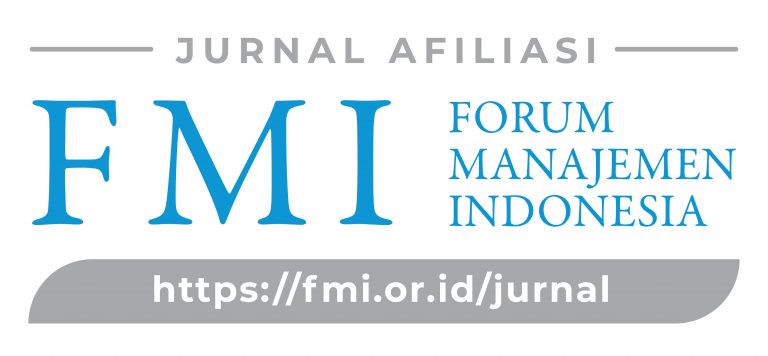ANALISIS PERSEPSI AKADEMISI DAN PRAKTISI TERHADAP FRAUD SERTA PERAN WHISTLEBLOWING SEBAGAI UPAYA PENCEGAHAN DAN PENDETEKSIAN FRAUD
DOI:
https://doi.org/10.55732/unu.gnk.2022.04.1.6Keywords:
Whistleblowing, Prevention and Detection, FraudAbstract
The purpose of this study was to examine more deeply how the perception of academics (professors and students) and practitioners of the accounting practices of fraud as well as the role of whistleblowing for prevention and detection of fraud. This type of research is using qualitative methods using natural setting that aims to describe the circumstances (phenomenon) that happens. The data analysistechnique used is data collection, data reduction, a data display and conclusion drawing/ verifying. Based on the results of research and discussion concluded that the perception of academics (professors and students) accounting and practitioners are almost entirely have to have a good understanding of fraud and whisleblowing for prevention and detection of fraud. This indicates that of University of Muhammadiyah Sidoarjo has the potential to become a whisleblower and for PT. PG Candi Baru shows that this company has the potential to further improve good governance in the public sector because with a good understanding of these conditions, the potential for the occurrence of acts of fraud will getting smaller
References
Alam, Muhammad D. (2014). Persepsi Aparatur Pemerintah Dan Anggota Dewan Perwakilan Rakyat Daerah Kota Malang Terhadap Fraud Dan Peran Whistleblowing Sebagai Upaya Pencegahan Dan Pendeteksian Fraud.
Amalia, Ratna. (2013). Pengaruh Audit Terhadap Pencegahan Pendeteksian Fraud (Suatu Studi Paa Gabungan Koperasi Pegawai Republik Indonesia, Jawa Barat). Skripsi. Cirebon: Universitas Pasundan.
Badan Pengawasan Keuangan Dan Pembangunan. (2008). Fraud Auditing. Edisi kelima. Bogor: Pusdiklatwas BPKP. Fakultas Ekonomi Universitas Muhammadiyah Sidoarjo. 2011.
Harahap,Wira S. (2014). Persepsi Mahasiswa Akuntansi Universitas Maritim Raja Ali Haji Terhadap Kecurangan (Fraud).
Iprianto. (2009). Persepsi Akademisi dan Praktisi Akuntansi Terhadap Keahlian Akuntansi Forensik. Tesis. Semarang: Universitas Diponegoro.
Idhom,Addhi M. (2013). Akibat Korupsi, Uang Negara Meluap Rp168,19 Triliun (online). http://www.tempo.co/read/news/2013/03/04/058464996/Akibat-Korupsi-Uang-Negara Menguap-Rp16819-triliun.
Kristanti, Dymita A. (2012). Persepsi Mahasiswa Terhadap Peran Akuntansi Forensik Sebagai Pencegah Fraud Di Indonesia. Skripsi. Universitas Negeri Yogyakarta.
Malik M.G., Rahardian. (2010). Analisis Perbedaan Komitmen Profesional dan Sosialisasi Antisipatif Mahasiswa PPA dan Non-PPA Pada Hubungan Dengan Whistleblowing (Studi Kasus Pada Mahasiswa Akuntansi Universitas Diponegoro). Skripsi. Semarang: Universitas Diponegoro.
Moleong, Lexy J. (2010). Metodologi Penelitian Kualitatif. PT. Remaja Rosda Karya. Bandung.
Rozmita & Nelly. (2012). Gejala Fraud Dan Peran Auditor Internal Dalam Pendeteksian Fraud Di Lingkungan Perguruan Tinggi (Studi Kualitatif). Jurnal Simposium Nasional Akuntansi
Setyawan, Hendra A. (2013). Stagnan, Indeks Persepsi Korupsi Indonesia 2013! (online). http://nasional.kompas.com/read/2013/12/03/1449245
Sulistomo, Akmal. (2012). Persepsi Mahasiswa Akuntansi Terhadap Pengungkapan Kecurangan (Studi Empiris Pada Mahasiswa Akuntansi UNDIP dan UGM). Skripsi. Semarang: Universitas Diponegoro.
Sugiono. (2008). Metodelogi Penelitian Bisnis (Pendekatan Kuantitatif, Kualitatif dan R&D). Cetakan 15, Alfa Beta. Bangung.
Tuanakotta, Theodorus M. (2010). Akuntansi Forensik & Audit Investigatif Edisi 2. Salemba Empat. Jakarta.
Walgito, Bimo. (2010) Pengantar Psikologi Umum. Yogyakarta: ANDI. www.transparency.com. Diakses pada tanggal 20 Februari 2015.
Wind, Ajeng. (2014). Forensic Accounting. Dunia Cerdas. Jakarta.
Downloads
Published
How to Cite
Issue
Section
License
Copyright (c) 2022 wiwit hariyanto

This work is licensed under a Creative Commons Attribution 4.0 International License.
Authors who publish with this journal agree to the following terms:
Authors retain copyright and grant the journal right of first publication with the work simultaneously licensed under a Creative Commons Attribution License that allows others to share the work with an acknowledgement of the work's authorship and initial publication in this journal.
Authors are able to enter into separate, additional contractual arrangements for the non-exclusive distribution of the journal's published version of the work (e.g., post it to an institutional repository or publish it in a book), with an acknowledgement of its initial publication in this journal.
Authors are permitted and encouraged to post their work online (e.g., in institutional repositories or on their website) prior to and during the submission process, as it can lead to productive exchanges, as well as earlier and greater citation of published work (See the Effect of Open Access).















